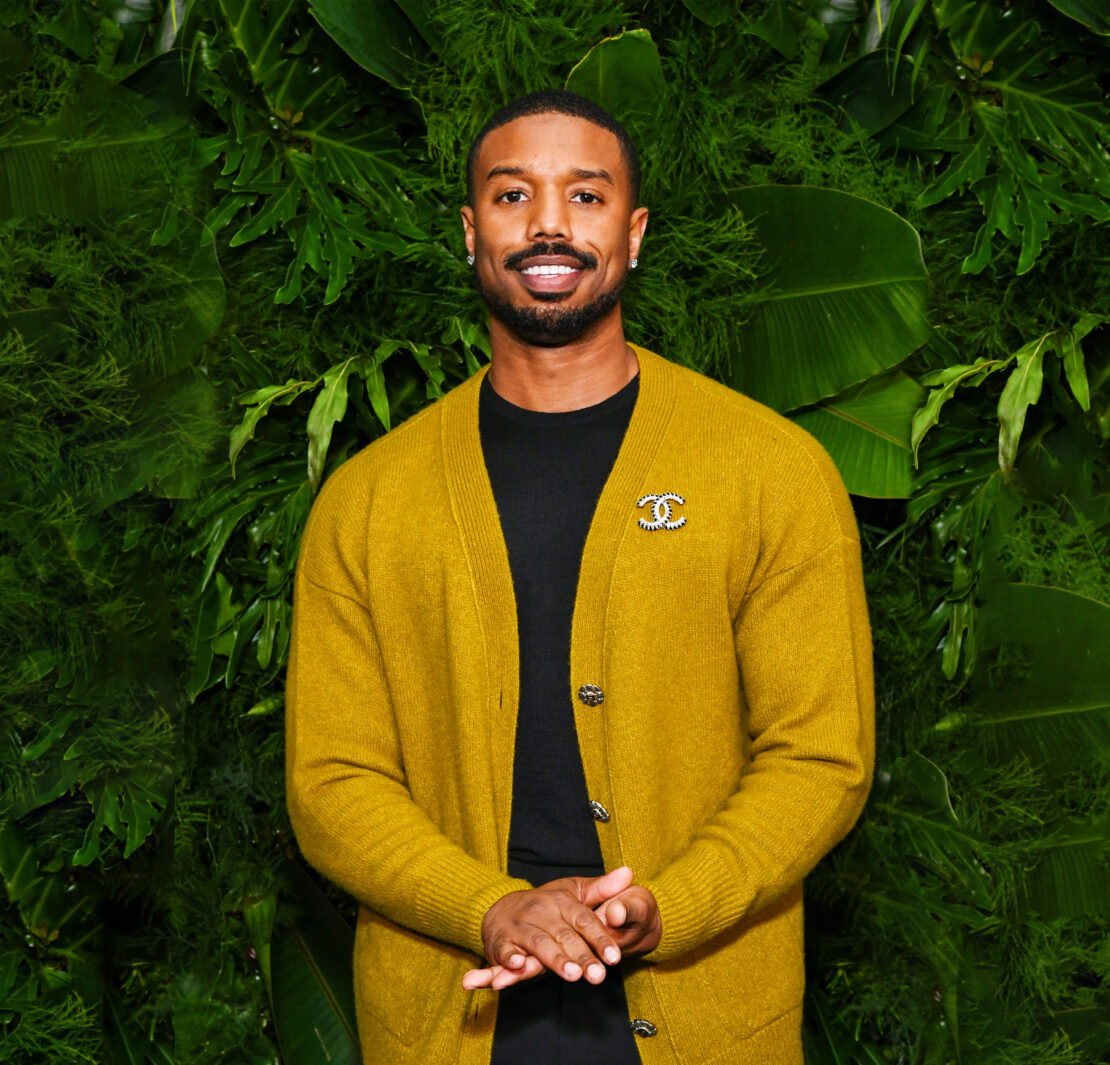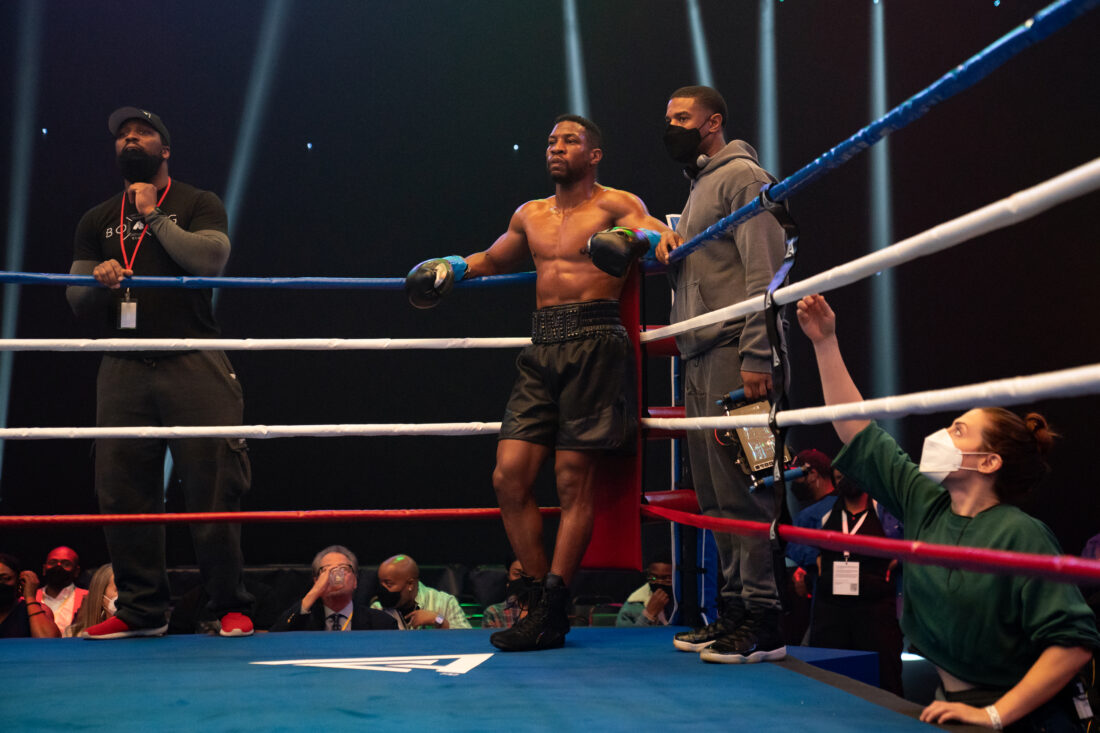Michael B. Jordan always dreamed of ending up in the director’s seat. And for almost everyone who’s worked with the Creed III star over his career, they knew one day it was going to happen.
Wood Harris, who plays Jordan’s mentor in the Creed franchise, could tell there was something special about him way back when they worked together nearly two decades ago on “The Wire.”
“It’s been great for me to see his evolution both as a person and his artistic evolution as a director,” Harris told RELEVANT. “And to be in the first film he’s directing… It’s surreal in some ways, but it’s not surprising.”
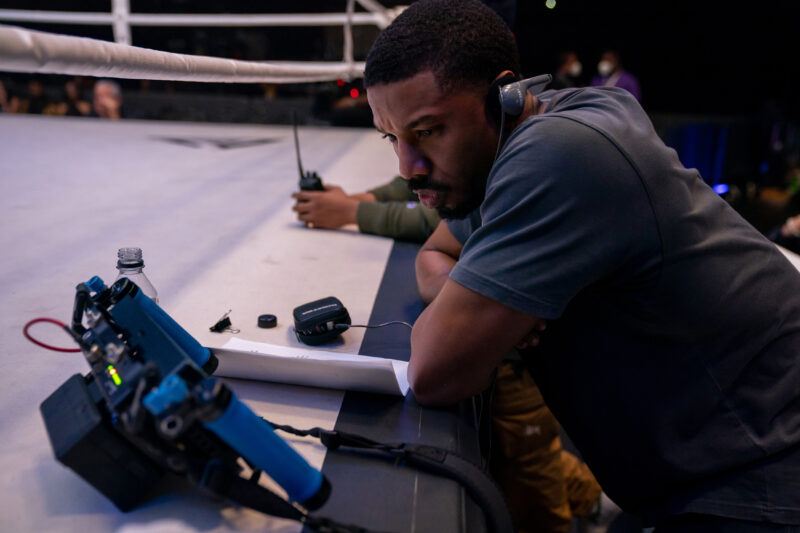
A LONG TIME COMING
At the beginning of his career, Jordan wasn’t sure where he’d end up. Although, to be fair, he was still only a teenager.
Jordan got his big break on HBO’s “The Wire” as Wallace, a 15-year-old drug dealer whose (spoiler alert) tragic ending is still mourned decades later — thanks to Jordan’s emotional performance. He then moved on to a brief stint in the daytime soap opera “All My Children” before landing another memorable gig as Vince Howard in “Friday Night Lights.”
The young actor was happy with his career, but he was itching for something bigger. That chance finally came along in 2013, when he landed the starring role in Fruitvale Station, a biographical drama led by first-time director Ryan Coogler.
Together, Coogler and Jordan told the real-life story of Oscar Grant, a 22-year-old Black man who was killed by a Bay Area Rapid Transit police officer at the Fruitvale train station in Oakland, California. The film cemented both Jordan and Coogler as rising stars.
As it would turn out, Fruitvale Station kicked off not only Jordan and Coogler’s film careers, but it also was the start of their impressive partnership. Like Martin Scorsese and Robert De Niro, or Stephen Spielberg and Tom Hanks, Coogler and Jordan have developed an impressive résumé together. In just 10 years, Coogler and Jordan have worked on six projects together, including the Black Panther franchise and, of course, the Creed trilogy.
Working alongside Coogler allowed Jordan to get an up-close seat to the director’s style and approach. Jordan shared that watching Coogler hone his craft and directing abilities over the years gave him the confidence to step into the director’s seat himself.
“It’s been growing for a really long time,” Jordan said. “Directing, for me, was something that I didn’t think was possible until working with Ryan. The first time I stepped on set for Fruitvale Station and saw a young black man from a similar place as me, around my age, directing a feature film… I saw myself in him.”
Jordan shared that on the set of Fruitvale Station, Coogler inspired and encouraged him to share his story on his own time.
“I remember Ryan told me, ‘Mike, there’s no right time for this — when you find something that speaks to you, just jump for it and go for it.’ I’ve been quietly watching and learning, listening, and putting together things that inspire and excite me. And that’s what I did with Creed III.”
Jordan shared that while he took the reins on the latest installment of Creed, he still turned to Coogler for input on the story. But ultimately, Jordan knew it was up to him to decide where Creed’s story went next.
“I grew up along with Adonis Creed,” Jordan said. “I created him with Ryan and got a chance to play him at pivotal times during my own personal life. So now, in the third film in the series, to be able to tell the story of where I am now, and where Adonis is on his journey, feels extremely personal.”
When Jordan signed on to the role back in 2015, the story of boxer Adonis Creed, illegitimate son of Rocky Balboa’s rival-turned-friend Apollo Creed, was a blank page. Over the years, Jordan and Coogler turned him into a boxer that everyone was truly rooting for.
The first two films saw Creed (another spoiler alert) overcome daunting opponents and win a championship title. He won the girl, he won the fame. So, what else was left to tell in his story?
Jordan knew the answer. He’s described the film as a reflection of his own experiences as a young Black man and “a way for me to share a piece of myself with the world.”
“I was excited to see Adonis through wherever he needed to go next,” Jordan continued. “How does he stay hungry? How does he find motivation now? The answer was, through a reminder about who he was before fame, and before he got everything that he dreamed of. As an actor and a director, that’s what I was most interested in exploring.”
‘A NATURAL DIRECTOR’
Absolutely no one was surprised when Jordan stepped into the ring as the director of Creed III.
“This was the perfect project for Michael to direct,” said Tessa Thompson, who plays Adonis Creed’s wife, Bianca. “First of all, his move to directing makes sense: he’s been working for a long time. He was a child actor, and the best training is being on a ton of sets. When you have the benefit of working with so many incredible people, you learn a lot. His getting to use all of the knowledge that he’s gained over the course of his career feels exactly right, particularly on Creed III, because he knows the world of the films.”
Thompson has worked across from Jordan for nine years, but working with him as a director allowed her to see him in a new light.
“He’s a natural director,” she shared. “Michael has the kind of spirit that brings a group of people together to make them feel seen and taken care of. It was an honor to watch.”
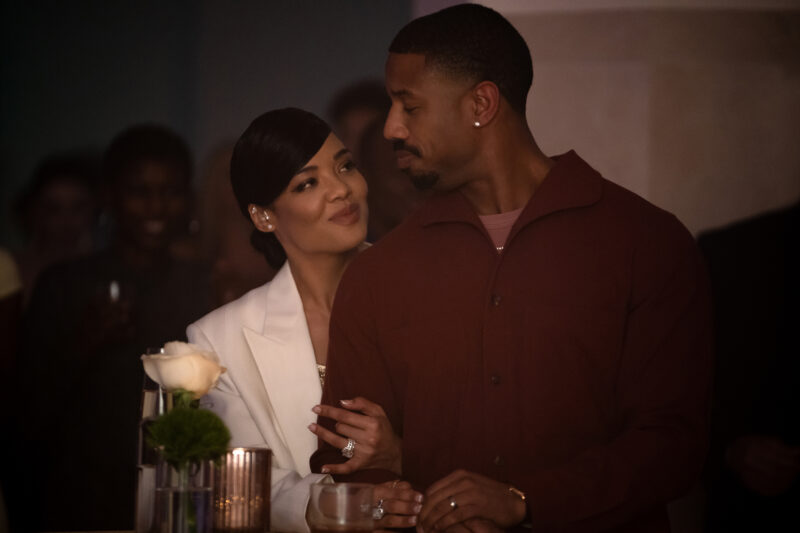
Harris, who sees Jordan as a younger brother, was championing the first-time director from the moment he walked on set. Like his character Little Duke, Harris looks out for Jordan and wants him to be his best. But after just a few days of filming, Harris knew that Jordan had everything under control.
“I spent a lot of time really just paying attention to his demeanor and the way he controlled the set,” Harris said. “Directors set the temperament of the set, and with Mike, everybody was focused because he was extremely focused.”
Jordan knew he had to work hard. He may be an established, award-winning actor, but he still felt the pressure to prove himself as a director. Then again, he said, that’s a feeling he experiences in all areas of his life.
“I’m always willing to prove myself,” Jordan said. “When you come from where I come from, and everybody doesn’t get those opportunities and breaks — that luck, or whatever — you start to question why you’re getting the things that you get. Why am I successful in life? Or why did I go this way, and everybody went that way? That builds up on you after a while.”
That pressure motivated Jordan to take his role seriously, both as an actor and the director. Pulling double duty meant he spent a minimum of 13 hours a day on set for months at a time.
“I think Mike was sleeping in an ice box in order to recoup his body,” Harris joked. “But he showed everyone how hard of a worker he is.”
Jordan didn’t just show up to do hard work, though. He also showed up to take care of an emotional story and the actors who helped him bring the story to the big screen.
“I’ve never felt more taken care of as far as the world-building of the film or the understanding of the character I was playing,” said Jonathan Majors, who plays the film’s antagonist, Damian. “We worked in such a way where it was a real collaboration. He trusted, for whatever reason, that I was going to do the job, and when you feel that trust, you want to deliver.”
Despite playing adversaries on screen, Majors and Jordan formed a real-life bond between takes, which brings an added emotional layer to the storyline audiences see on screen. Underneath the jealousy and frustration and fighting, there’s a genuine love between the actors.
“The conversations that Mike and I had on the set, and before and during filming — just like the conversations Damian and Adonis were having — were life-changing for me as an actor, and healing for me as an actor and a person,” Majors said. “And as an actor, it amazed me how our chemistry worked.”
THE STORY
The bond between Majors and Jordan, similar to the bond between Jordan and Coogler, inspired the first-time director to take the story of Creed to a new emotional depth.
“Michael was so honest and exciting as a filmmaker about what he wanted to do with the story, that he wanted to do something different from the canonical themes established already,” Majors said. “But at the same time, he wanted to honor the legacy of Rocky and the previous Creed films.”
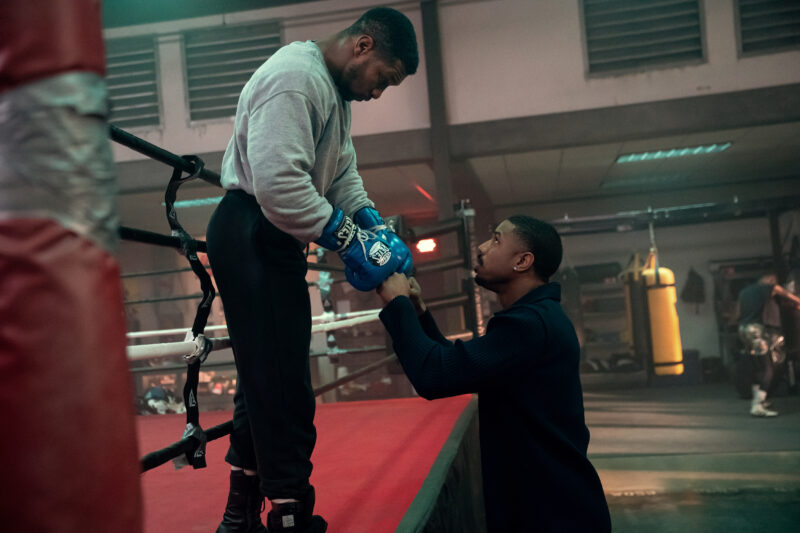
The franchise has always had some emotional stakes sprinkled in between the action sequences. But with Creed III, Jordan wanted to ensure that the emotional tension held just as many high stakes as the physical battles.
“I wanted the characters in my film to face their disagreements while making a statement about humanity and its nuances, with empathy,” Jordan said. “How we handle and communicate our emotions is a part of our exploration of our inner self. I wanted my film to reflect lessons I have learned in life. Lessons about being kind to one another, but mostly kind to ourselves. Most of us have not been taught how to do that.”
The third installment of Creed explores an emotional side of fighters movies don’t often explore. Adonis Creed has already won — he’s got the championship title, the girl, the fame. But when a past friendship comes in to threaten everything he has, the young fighter realizes there’s still a long journey ahead for him.
“I wanted my film to also tackle the issues of toxic masculinity and what happens when you don’t face your past, when you don’t talk about and work through your trauma and pain,” Jordan said. “Forgiveness is the most integral part of any conflict because it’s the only way to overcome what you’re up against. Confronting yourself in a real way is how you move forward with healing.”
He’s speaking from personal experience. Jordan has spoken up about his struggle with bullying as he was growing up, particularly from classmates making fun of him for his dreams of becoming an actor. But he’s learned to forgive others, and even forgive himself for missteps he’s made in his own career.
It’s clear that Jordan took the lessons he’s learned to heart and embedded them into the film’s story.
“At the heart of Creed III is forgiveness,” he said. “Forgiveness of self and others. No matter who you are, or what your circumstances are, you can overcome your past, you can overcome any obstacle. If you focus hard enough and understand that the right decision is not always the easy decision, you can come out on top.”
In this moment, this is where the story of Adonis Creed blends with Jordan’s own story. He’s speaking just as much to himself as he is the core message of the movie — pushing one’s self to be the best they can be, and believing they are capable of great things.
“This film is not about one man fighting another for a world title,” Jordan said. “It is about challenging yourself and proving to yourself that your existence is legitimate, that you deserve your blessings. Moving with grace for yourself and for others. Believing that you are who you say you are, and all that you’ve done actually matters.”








